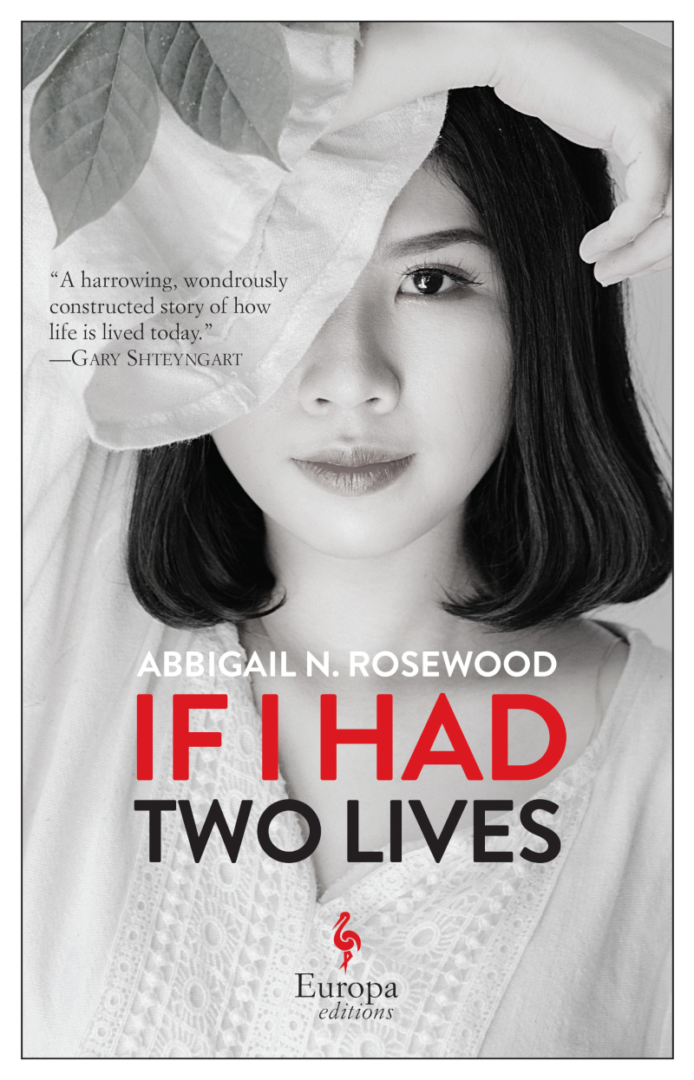
Halfway through Abbigail N. Rosewood’s debut novel, If I Had Two Lives, the nameless narrator’s neighbor, a Vietnamese immigrant like herself, gives her insight into life in the United States: “People here,” he says, “still think Vietnam is a jungle—brown savages, an exotic Asian whore who you can’t possess, but still satisfies all your sexual demands. It’s burnt into the American imagination. You can’t change that.” In a quietly controlled book, it’s an unexpected moment of rage, where the author lays bare the type of narrative she’s working against. It’s perhaps at this moment that readers start to realize Rosewood’s novel is not quite what they expected from a Vietnamese American author writing about Vietnam.
Indeed, If I Had Two Lives begins in 1997 when the War—the hallmark of so many narratives about Vietnam—is a distant memory. Rosewood’s Vietnam is post-war, post-đổi mới. Vietnam has since opened up to capitalism while struggling to maintain its communistic tenets. At the same time, corruption has become a part of the fabric of the Vietnamese government. The narrator’s mother is one of the few fighting against this corruption and fearful of “being eliminated or imprisoned on false charges,” leaves her daughter behind for the safety of a military compound with the help of a personal ally. As the novel begins, the protagonist, at the age of seven, reunites with her mother after four years of being separated.
Though this new home is populated with others—military officers and support staff—the narrator and her mother live a secluded life. While others live in “square and rectangular boxes designed to be cost-efficient,” mother and daughter live in a building left behind by the French that is both grandiose and rotting (“A chandelier hung in the middle, its crystal teardrops blackened by moth carcasses.”)
Her mother, we learn, is a woman of ideas. She spends nights squinting over “loose pages” of “symbols and letters.” She dreams of the United States and France and reads Russian and British novels. She teaches her daughter French and math and becomes furious when the seven-year-old doesn’t understand. “Tell me the point of teaching someone with a pig’s brain,” she lashes out at one point.
Against this violent, tenuous atmosphere, the protagonist befriends a soldier and a little girl. While she sees the soldier as a protector, it is the little girl who brings the protagonist out of her shell. Together they play pretend, explore the military compound, trade notes, and read manga. It is an intense relationship, loosely reminiscent of Elena Ferrante’s Lenù and Lila (from the acclaimed Neapolitan Novels, also published by Europa Editions) but darker, made of need and loneliness: “I saw the imbalance in our friendship,” says the narrator, “seeing how it didn’t matter what I meant to the little girl because of how much I already needed her.”
But the little girl harbors secrets of abuse, which soon enough engulfs the narrator too. A violent end comes to their friendship, and afterwards the narrator is sent off alone to New York, where, even years later, the memory of the little girl haunts the narrator, especially in the person of Lilah (perhaps named in a nod to Ferrante’s novels), a woman she meets in Montauk on one of her lonely winter night drives away from the city. The lives of the two women eventually become significantly intertwined.

Rosewood’s debut is a delicate exploration of loneliness and a chronicle of the impossible task of recovering what is lost. Even when we meet the narrator, she has already lost her father and her emotionally unavailable mother was already lost to begin with. From this starting point, the novel’s narrator stumbles towards finding her own family—first with the little girl from the compound, then with a New York neighbor that reminds her of the soldier, then with Lilah and her husband Jon, both of whom she has sexual affairs with.
More than an exploration of loneliness of the immigrant experience and of a childhood lost, If I Had Two Lives tackles history, our place in it, and how it inevitably shapes the future. Rosewood asks big questions: are we doomed to repeat our family’s sins and mistakes? How do we atone for these? How do we move forward as better people? Given the circumstances of history and the shadow it casts, how do we live? This is a deeply philosophical novel.
The book is not without its flaws. At times the pacing is slow. Rosewood is at her most powerful when she chooses to reveal the truths of her characters’ lives in succinct prose and crystalline metaphors as in: “Between us, love had become more like a fact, something you knew existed outside of yourself, and less like a feeling” or “I used to think it was impossible to reconstruct the past, but slabs of memories were stacking up around me like bricks. I was a willing prisoner.” But she falters when she overreaches in her description of the abstract: “The acme of all love was abandonment, the only point at which we would fulfill the promise of immortality, to persist in our love for those who are absent, into oblivion.”
Still, it is a sophisticated novel. The tone is quiet and mysterious—sometimes gothic, other times erotic. The characters are ambiguous until suddenly they are not. The plot is full of twists and turns: from the first page, you expect one thing; by the end, Rosewood has given something pleasantly different. In this way, the novel is surprisingly playful. All of this to say, If I Had Two Lives marks the exciting debut of a novelist who has much to offer.
If I Had Two Lives
by Abbigail N. Rosewood
Europa Editions, $18.00
Eric Nguyen is the Book Reviews Editor for diaCRITICS.


